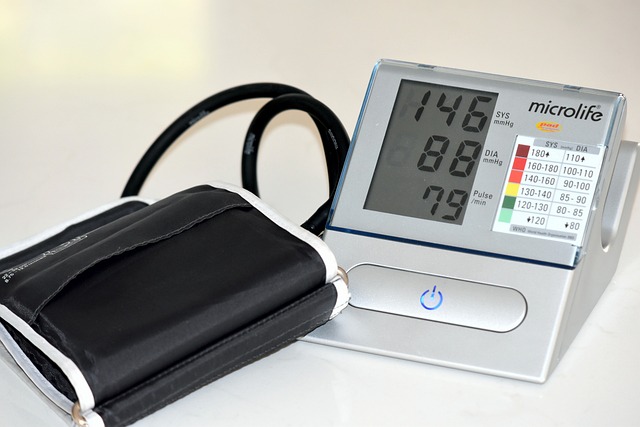Iron deficiency anemia, characterized by low red blood cell count and ferritin levels, is diagnosed via simple blood tests in the UK. Symptoms include fatigue, weakness, taste changes, and rapid heartbeat. Early detection through ferritin tests is crucial for preventing serious health complications. Treatment involves restoring iron levels through dietary changes or supplements, with prompt results improving overall health outcomes.
“Discover how iron deficiency anemia, a common yet often overlooked health issue, can be effectively diagnosed with ferritin blood tests. This comprehensive guide explores the UK’s approach to identifying this condition.
Learn about the significance of ferritin levels in determining anemia and understand the symptoms to look out for. We’ll walk you through the testing process, offering insights into what to expect during a typical ferritin blood test, ensuring you’re well-prepared and informed.”
- Understanding Iron Deficiency Anemia and Its Symptoms
- The Role of Ferritin Blood Tests in Diagnosis
- Getting Tested: What to Expect and Common Procedures
Understanding Iron Deficiency Anemia and Its Symptoms
Iron deficiency anemia is a common blood disorder where your body doesn’t have enough healthy red blood cells to carry adequate oxygen to your body’s tissues. This can lead to fatigue, weakness, pale skin, shortness of breath, and dizziness. It’s caused by an iron shortage, which could be due to various factors such as blood loss, poor diet, or absorption issues. In the UK, a ferritin blood test is often used as a key indicator to diagnose this condition. Ferritin is a protein that stores iron in your body, and its levels can give healthcare professionals valuable insights into your iron reserves.
Symptoms may vary from person to person but often include cravings for non-food items (pica), unusual taste changes, difficulty concentrating, rapid heartbeat, and cold hands. If left untreated, it can lead to more serious health complications. Regular screening through simple blood tests like the ferritin test in the UK can help detect iron deficiency anemia early on, enabling prompt treatment to restore iron levels and alleviate symptoms.
The Role of Ferritin Blood Tests in Diagnosis
In the diagnosis of iron deficiency anemia, the ferritin blood test plays a crucial role in the UK and worldwide. Ferritin is a protein that stores iron in the body; its levels in the blood provide a direct indicator of total iron reserves. A low ferritin level is often one of the first signs suggesting iron deficiency. This simple yet powerful tool helps healthcare professionals identify individuals with potential anemia early on, allowing for prompt treatment and management.
The Ferritin Blood Test UK has become an essential part of routine screenings, especially for those at high risk or exhibiting symptoms like fatigue, pale skin, shortness of breath, and dizziness. By measuring ferritin levels, medical experts can assess the severity of iron deficiency and guide personalized treatment plans. This approach ensures that patients receive the most effective care tailored to their specific needs, contributing to better health outcomes.
Getting Tested: What to Expect and Common Procedures
When it comes to getting tested for iron deficiency anemia, many people wonder what to expect and how the process works. In the UK, one common procedure involves a simple blood test that measures ferritin levels. Ferritin is a protein that stores iron in your body; low ferritin levels can indicate an iron deficiency. During the test, a healthcare professional will take a small sample of your blood, usually from a vein in your arm, using a needle. This sample is then analyzed in a lab to determine your ferritin levels.
The procedure is quick and relatively painless, though some individuals may experience mild discomfort or bruising at the injection site afterward. Results are typically available within a few days, and your doctor will discuss them with you, explaining whether your ferritin levels suggest iron deficiency anemia and what treatment options are available. If iron deficiency is confirmed, addressing it through dietary changes, supplements, or medical interventions can help restore healthy blood parameters.
Iron deficiency anemia is a common yet treatable condition, and ferritin blood tests play a crucial role in its diagnosis. In the UK, these tests have become essential tools for healthcare professionals to identify iron deficiency anemia early on. By understanding the symptoms and knowing when to get tested, individuals can ensure prompt treatment and regain their energy levels. A simple Ferritin Blood Test UK can make all the difference in managing this condition effectively.
